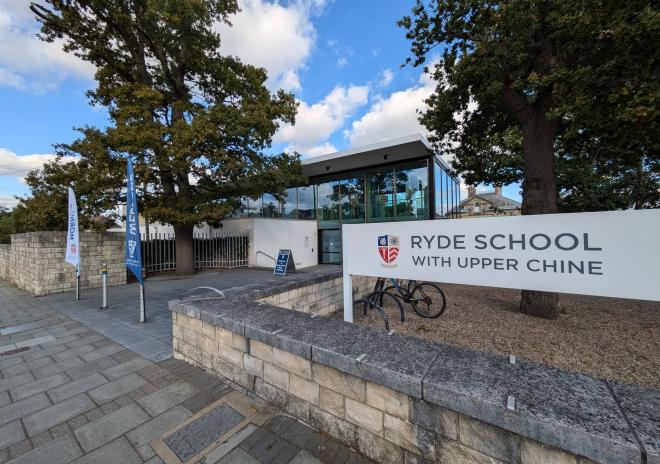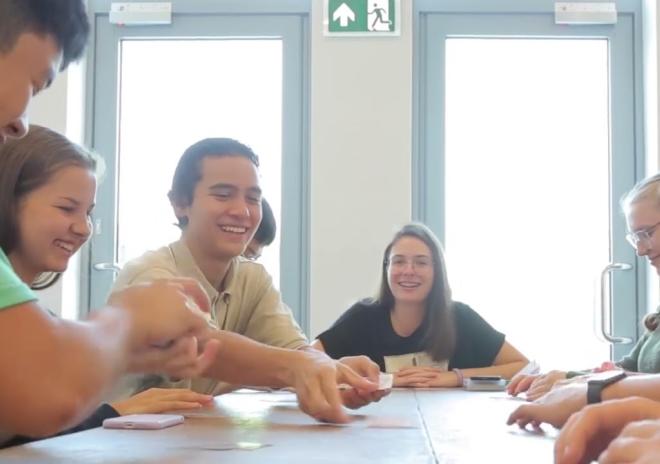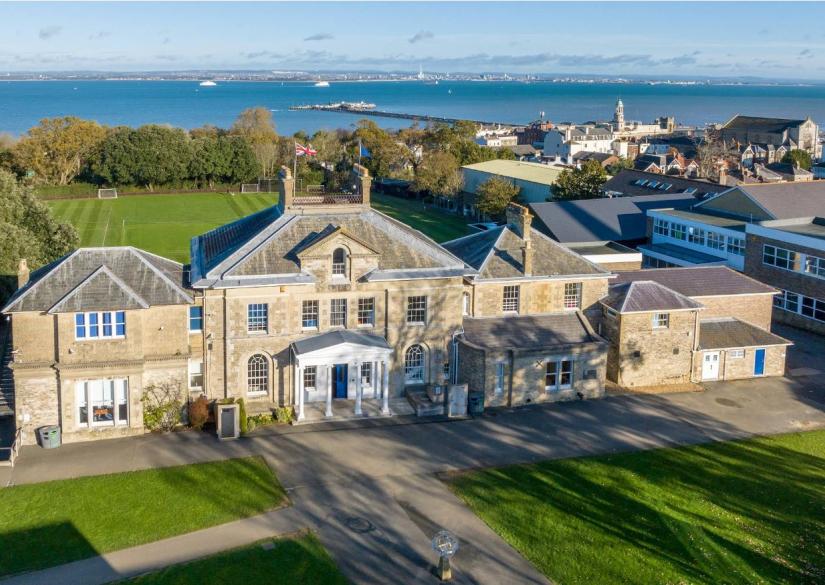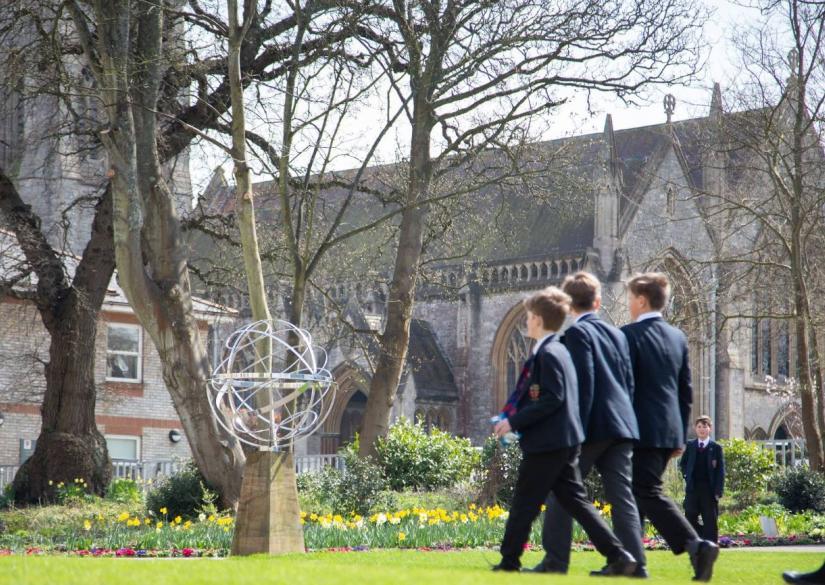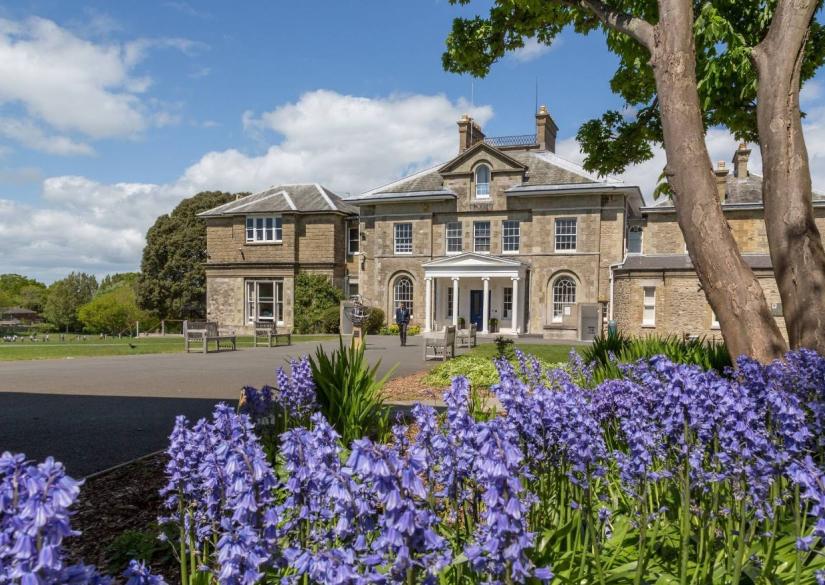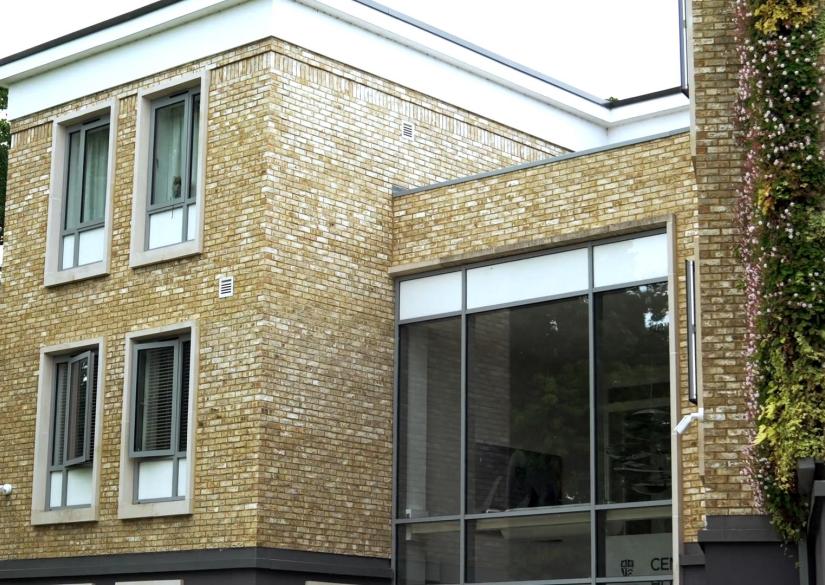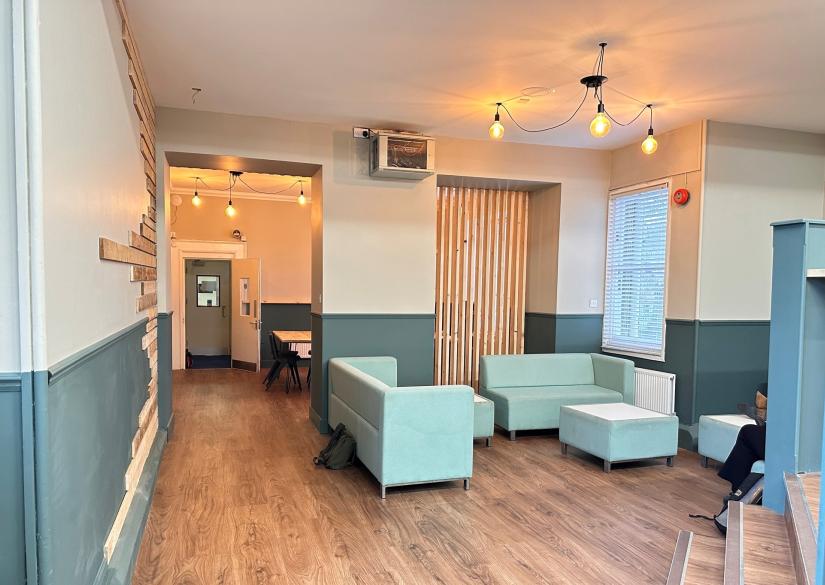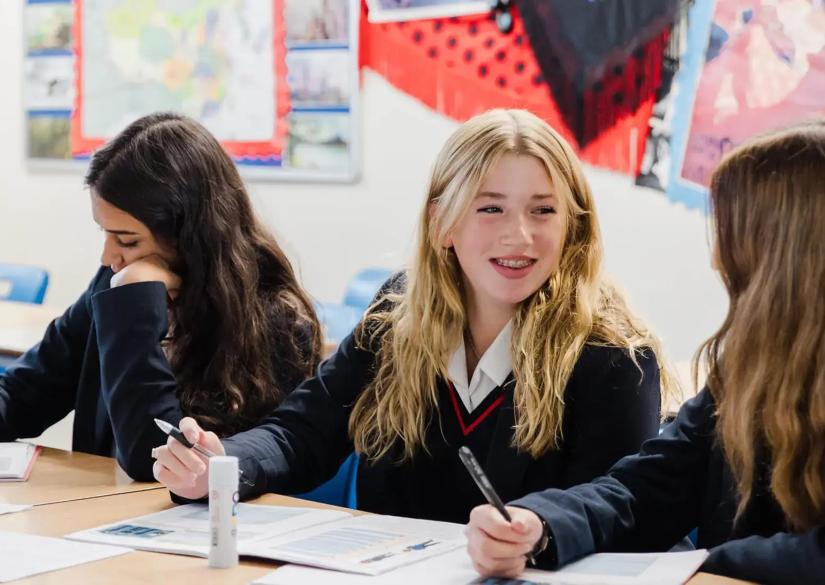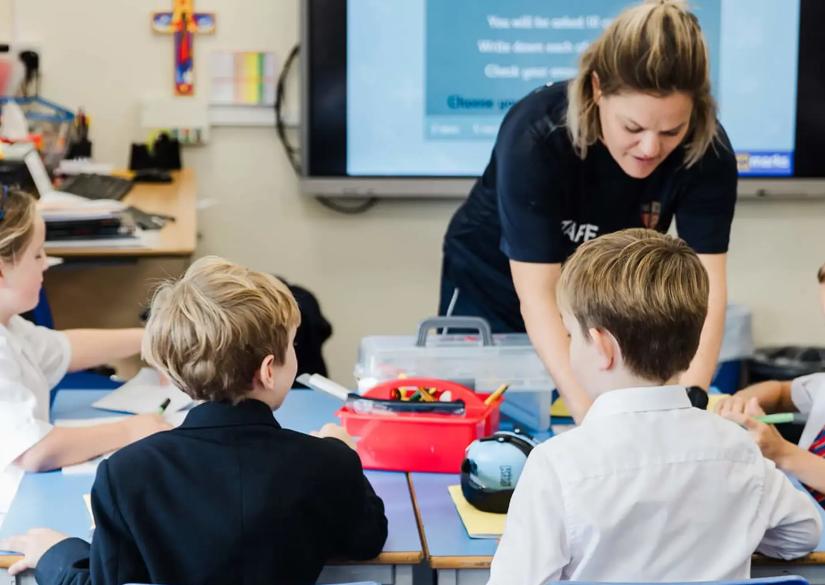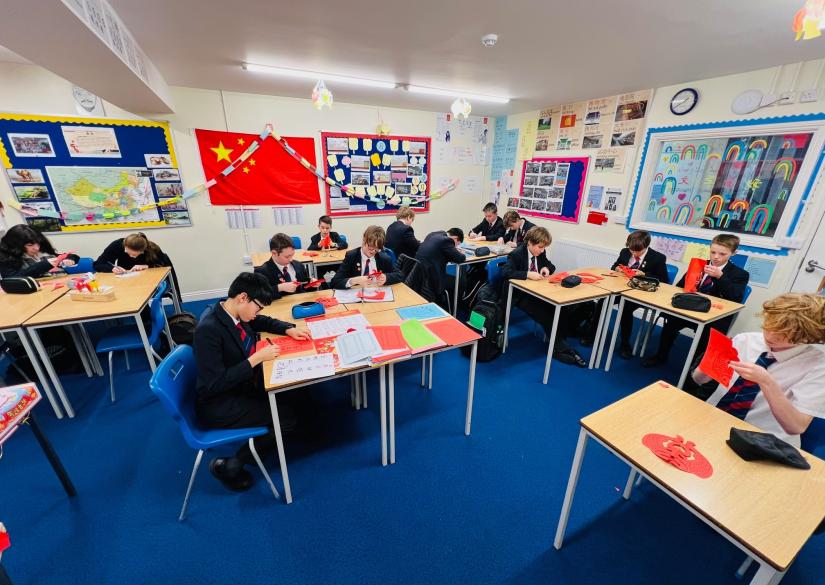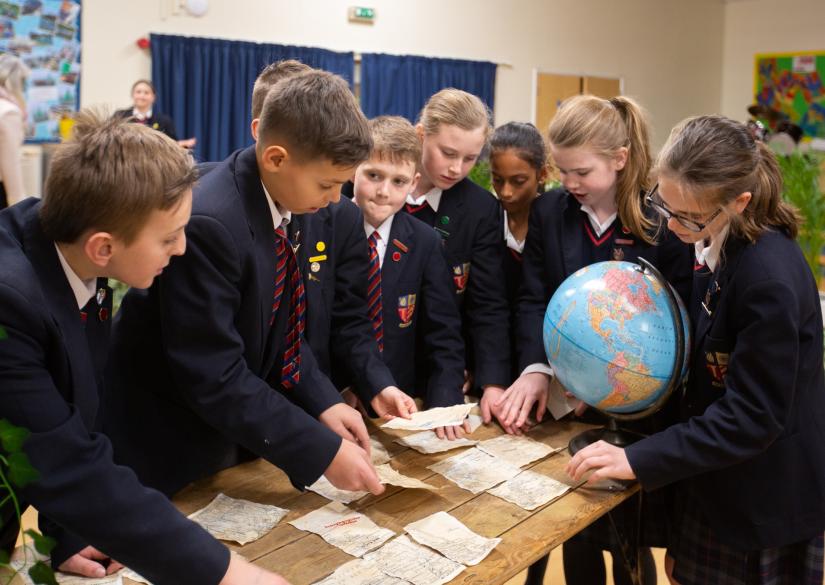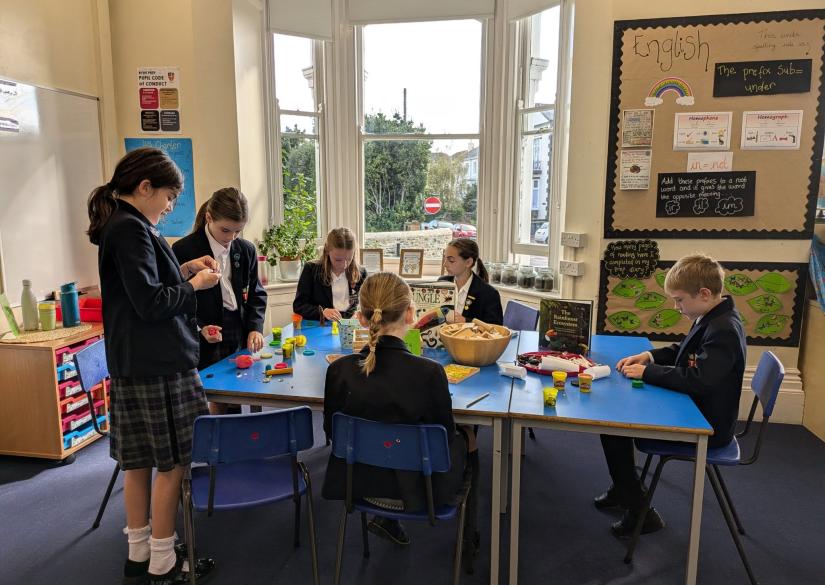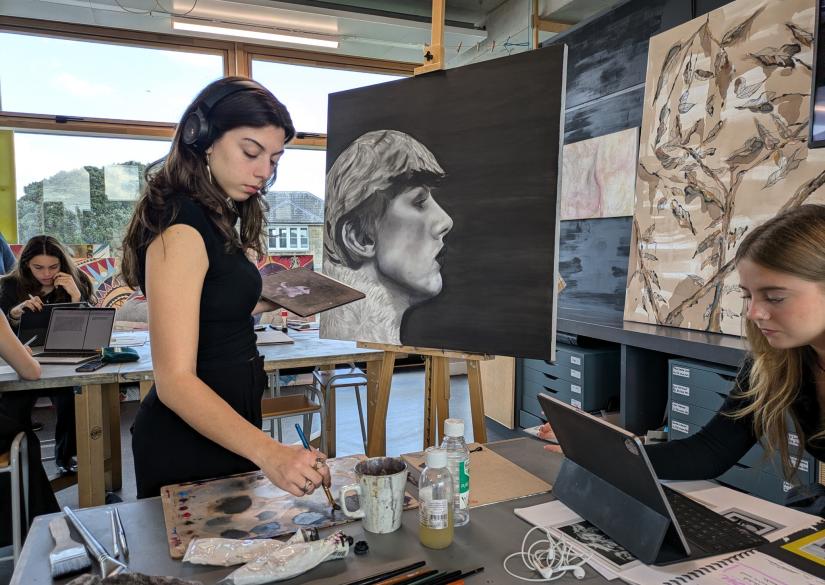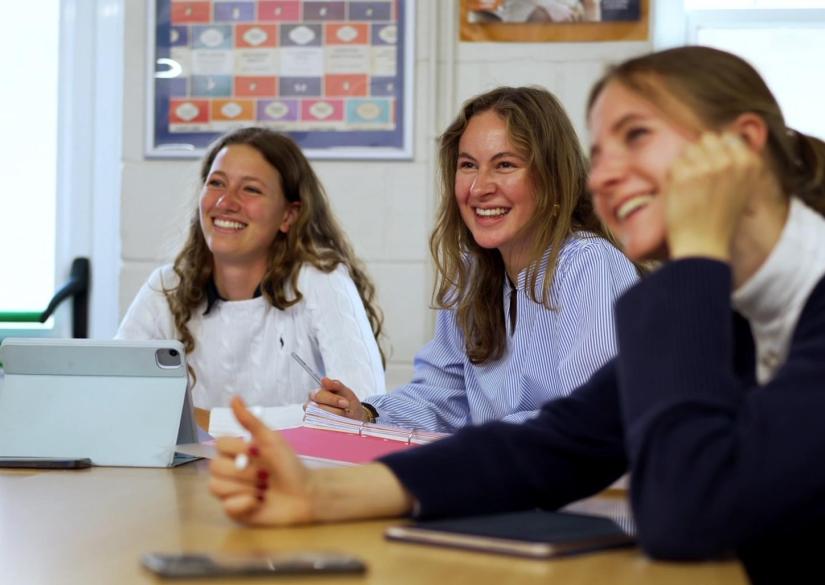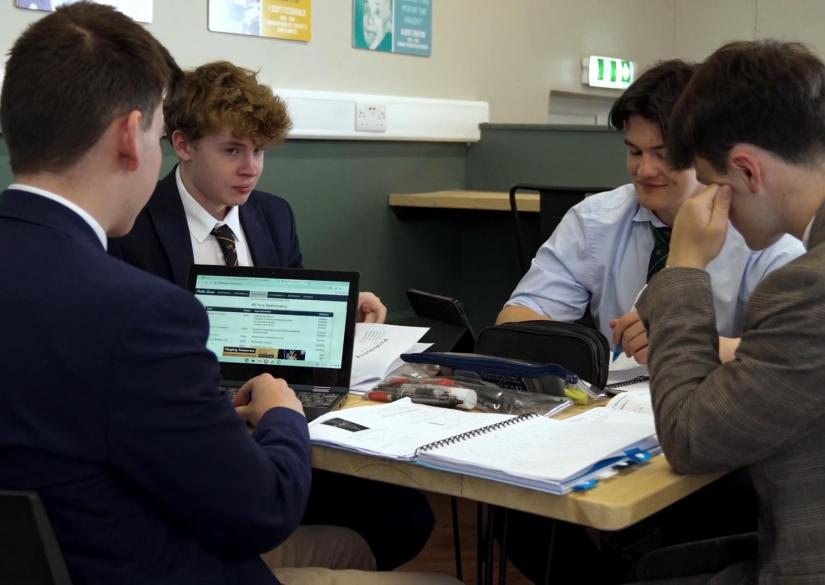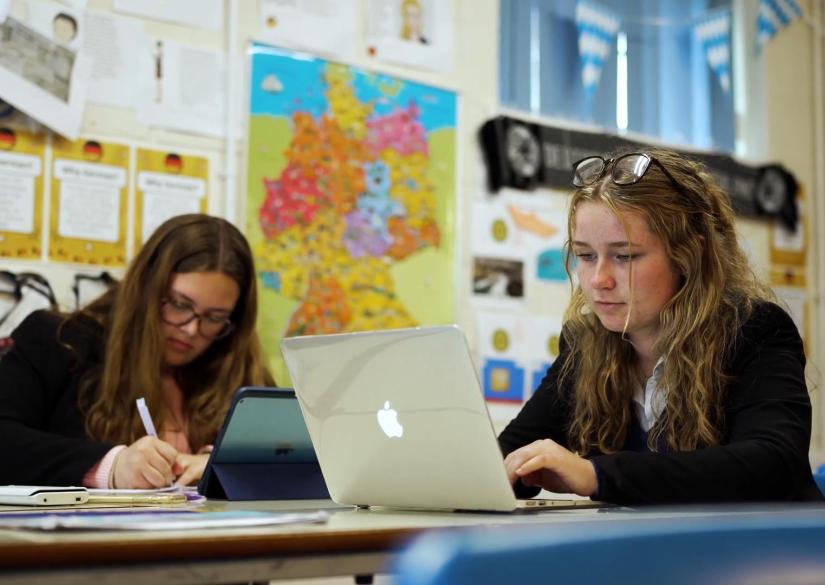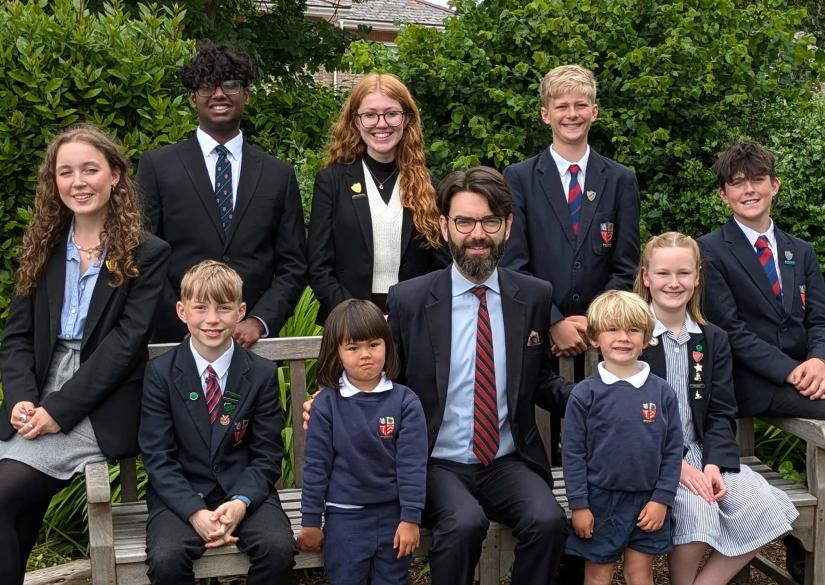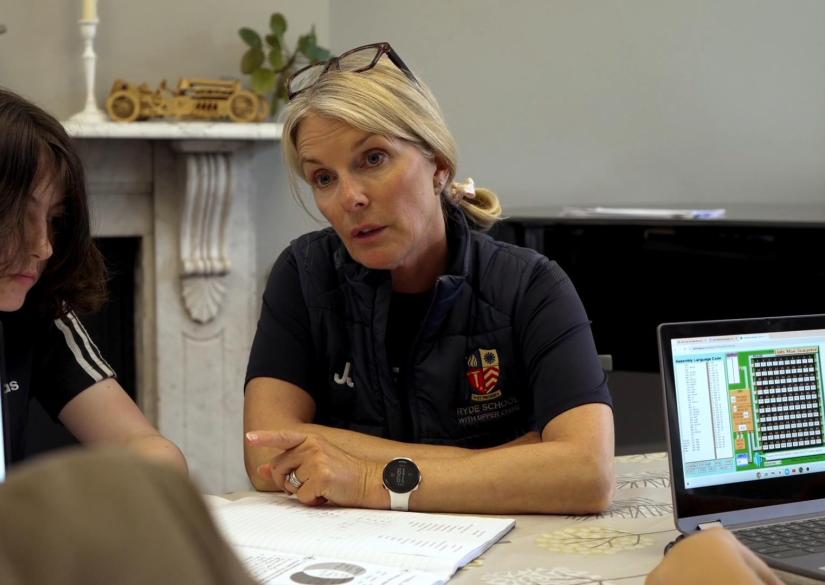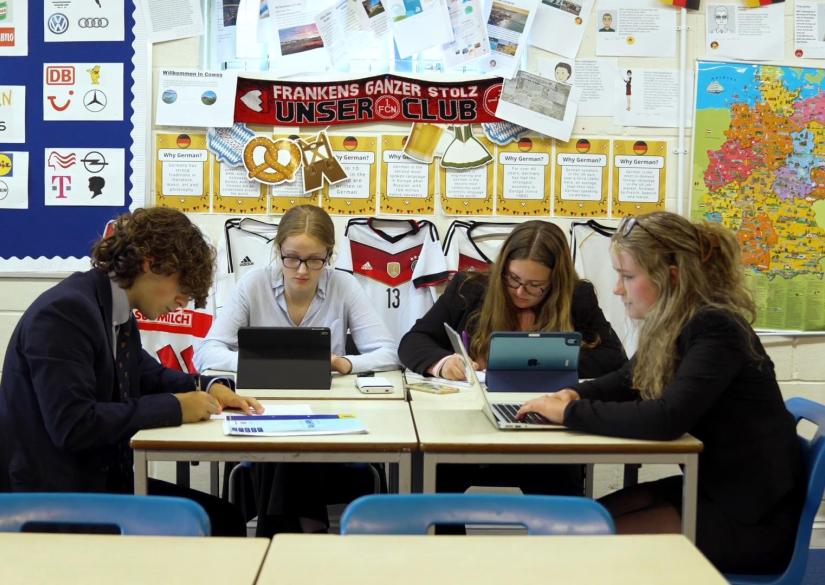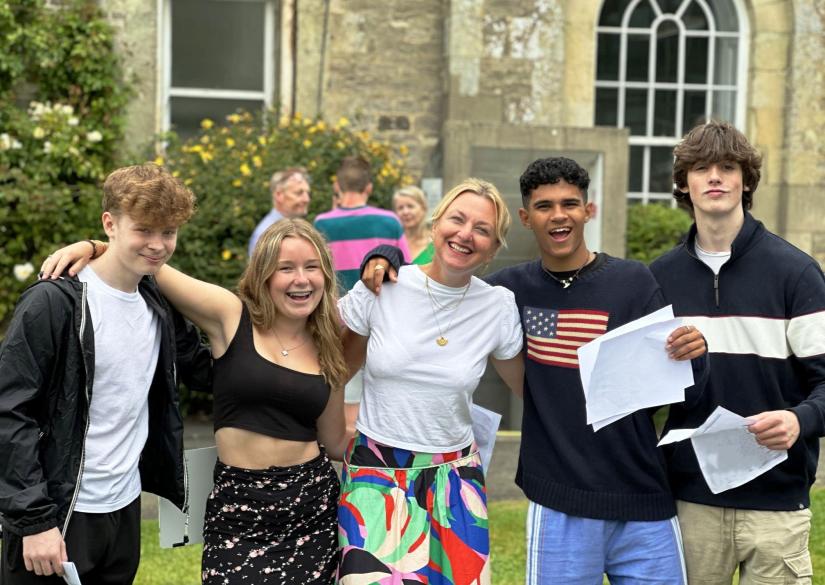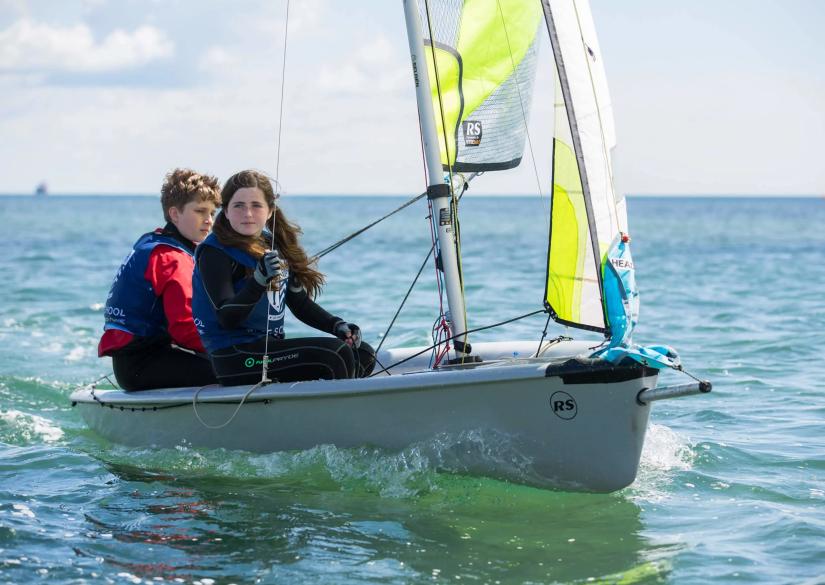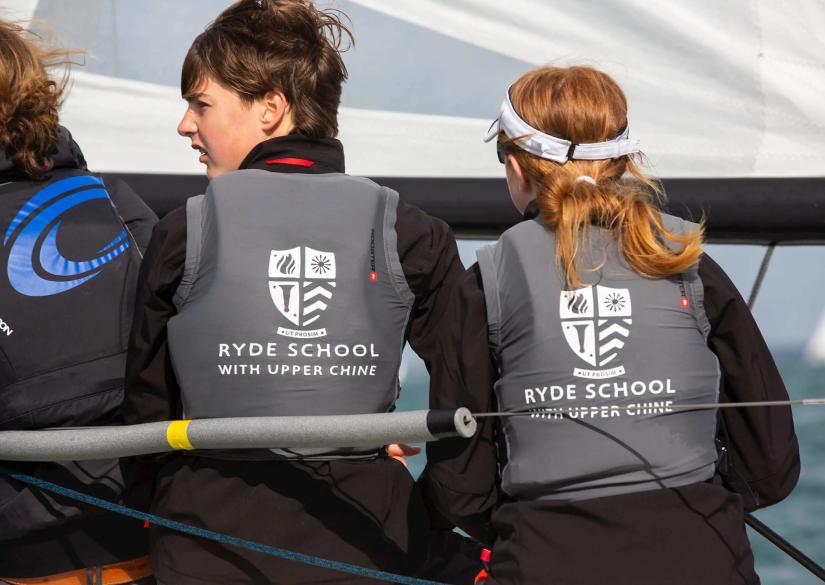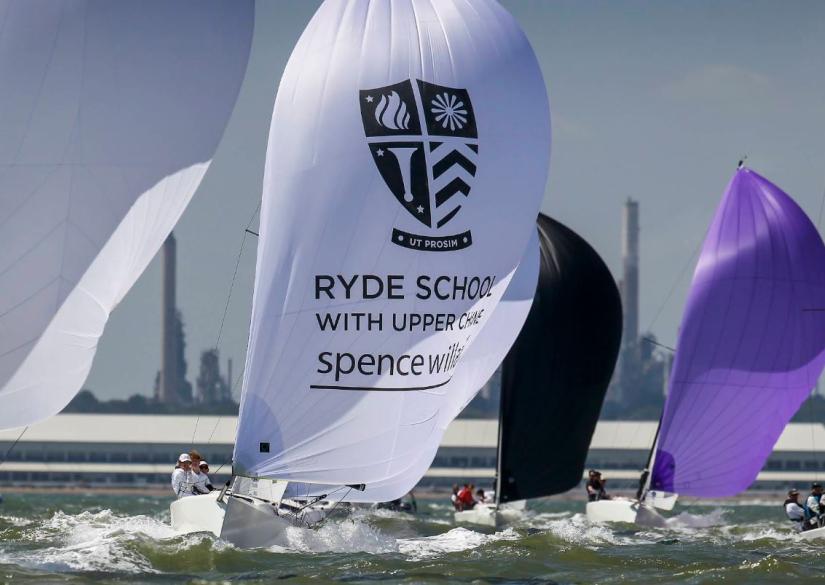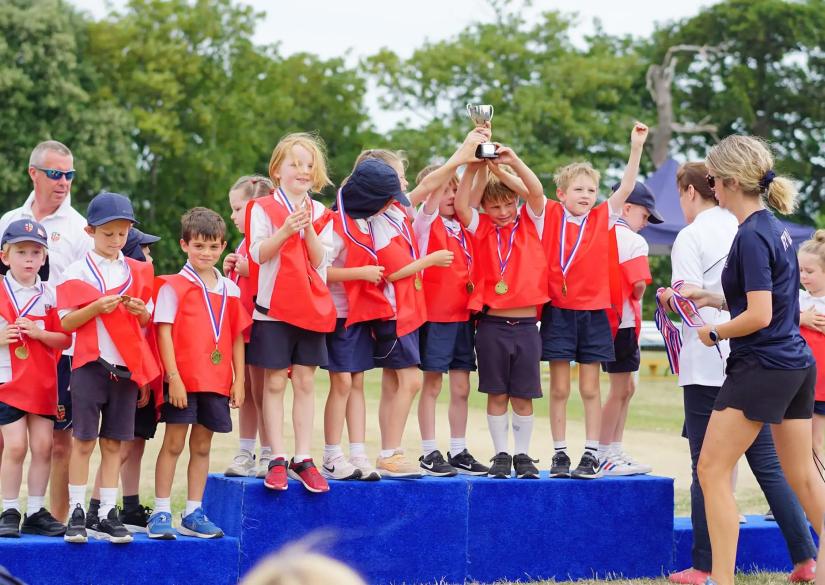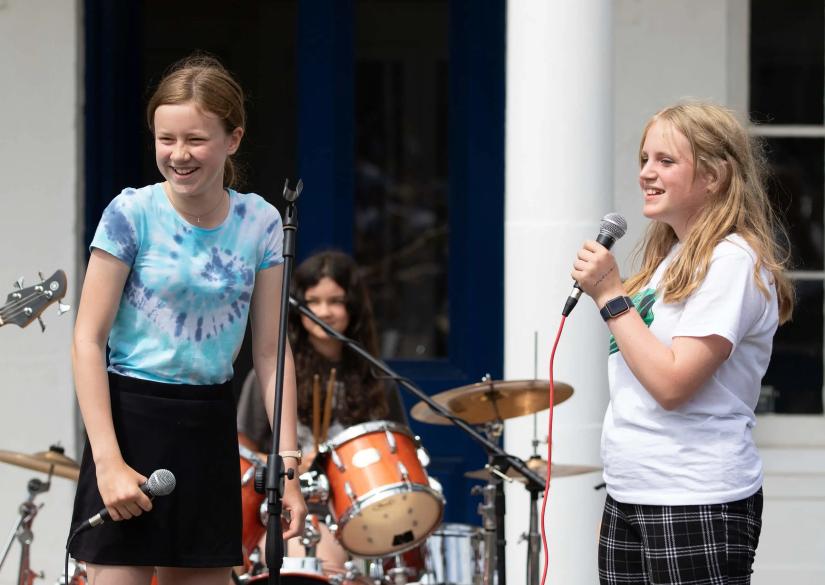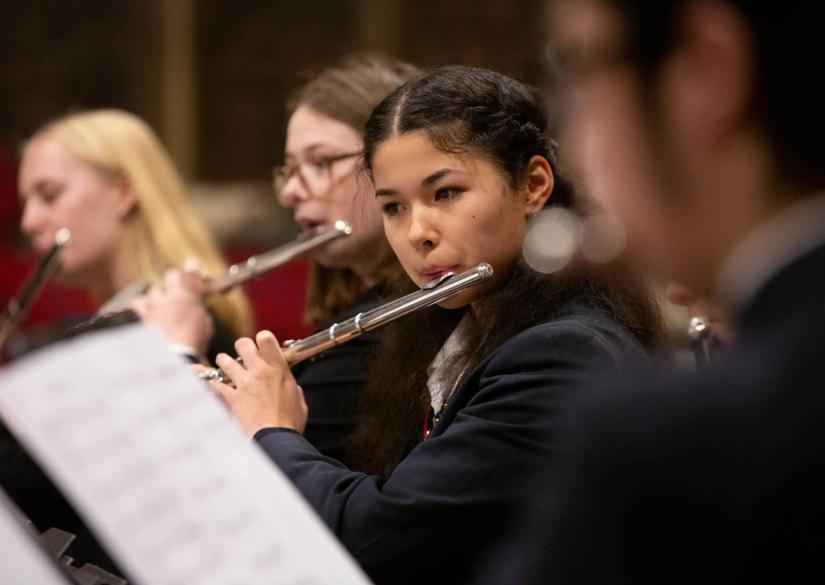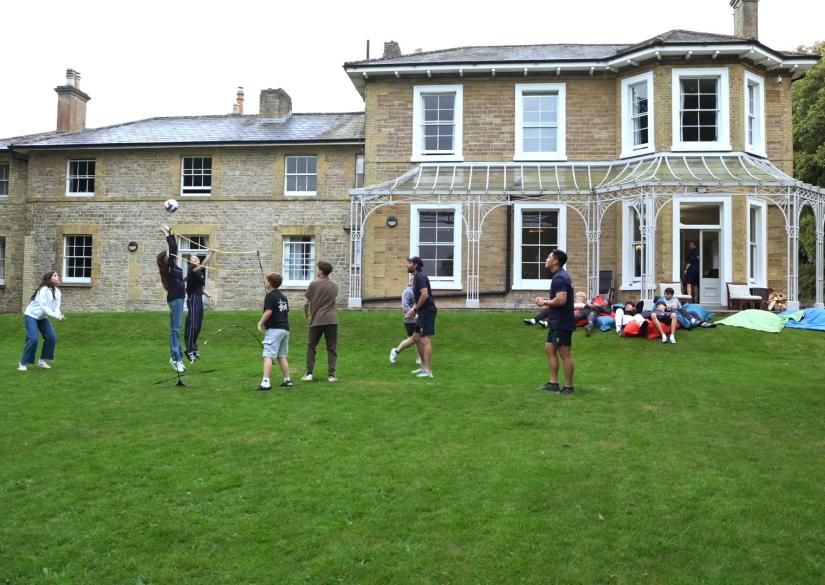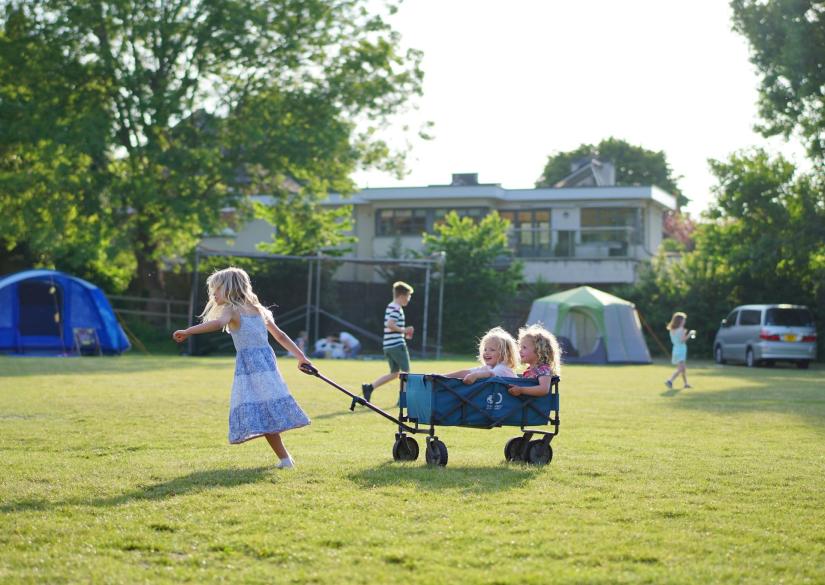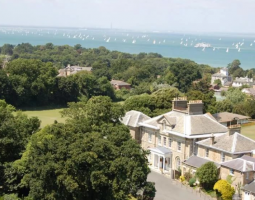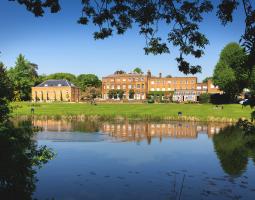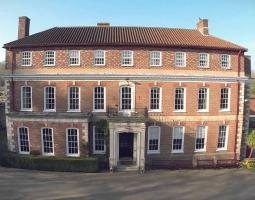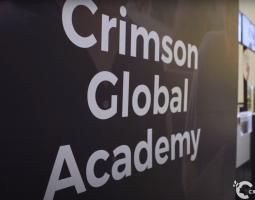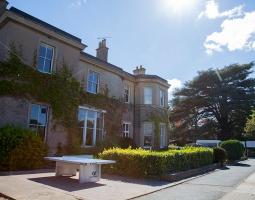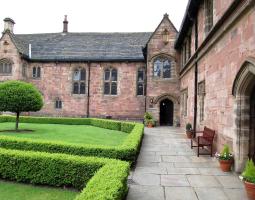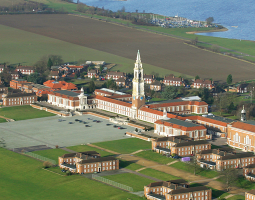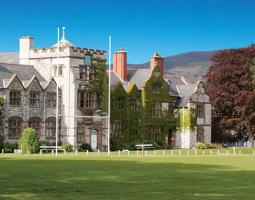Ryde School with Upper Chine
Programs and prices, tuition fees in Ryde School with Upper Chine
Prep School: Westhill Nursery
- Age of students - from two years old.
Ryde School with Upper Chine Kindergarten is open to children from 8:00 a.m. to 6:00 p.m. for 47 weeks a year. During visiting hours, students will engage in handicrafts, sports, walk in the fresh air and explore the environment, learn to interact with each other and with elders. The schedule of the educational day includes:
- 8:00-9:00 a.m. – reception of children,
- 9:00-12:30 p.m – classroom classes,
- 12:30-3:30 p.m. – lunch, walks,
- 3:30-5:00 p.m. – classes or walks,
- 5:00-6:00 p.m. – dinner.
Children can stay for half a day (until 12:30 p.m.) or for the whole day (until 3:30 p.m.), if they wish, until the evening.
Pre-Prep&Prep School
- Age of students - from four years old,
- The educational period is six years.
The curriculum of the Pre-Prep and Prep stages is based on the core subjects: mathematics, English and STEM. Children are encouraged to take an exploratory approach to learning, love of reading, show ambition and realize their ideas through visual and performing arts lessons, sports training, regular excursions and activities. The school day may include a Chinese or Spanish lesson, using an iPad to learn together with friends, playing the cello or violin, jogging on a treadmill, playing cricket, or creating a "logbook" in the woods. Gradually, the curriculum becomes more complex, revealing new topics in the core disciplines and introducing new scientific areas of study so that students are fully prepared for the transition to secondary school by the end of the sixth grade.
Instruction takes place from 8:00 a.m. to 3:30 p.m., but children can stay on campus in the after-school club until 6:00 p.m.
Middle Schools
- Age of students – from 11 years old,
- The term of study is five years.
The secondary school program covers classes 7-11.
In Years 7-9, the curriculum provides students with good preparation for the choice of subjects in Year 9 to specialise in GCSE. Studying a wide range of disciplines, including mathematics, natural sciences, social sciences, humanities and computer sciences, students gradually choose the areas that are most interesting to them and begin specialized, intensive preparation for the exam.
GCSE/IGCSE courses start in Year 10. Students will have to assemble an individual curriculum from subjects that are mandatory to study, and disciplines that reflect their interests. The total number of subjects to be taken is limited to ten. The list of mandatory ones includes English language and literature, mathematics, natural sciences: biology, chemistry, physics. In addition, students can select courses from the following list:
- Geography;
- Business Studies;
- Computer Science;
- Home cooking skills;
- Drama;
- Art & Design;
- History;
- Mathematics;
- Modern languages;
- English as a Second Language;
- Physical education;
- Design & Technology,;
- Music
- Religious Studies.
Employees of the career department assign mentors to students to plan their further academic path - transition to Sixth Form or admission to specialized colleges.
Sixth Form: International Baccalaureate Diploma Programme
- Age of students – from 17 years old,
- The term of study is two years.
IBDP diplomas are highly valued among leading universities around the world, as the process of studying under the program provides comprehensive development of international students, a strong base of academic knowledge and skills.
Over the course of two years, students study six subjects: three of them at the upper level (HL), the other three at the standard level (SL). They will have to put together an individual curriculum by choosing one subject from each research group:
- Language, literature: English language and literature;
- Language Acquisition: French, German, Spanish;
- Personalities, Societies: Economics, Geography. History, Psychology;
- Sciences: Biology, Physics, Chemistry, Design Technologies;
- Mathematics;
- Art: Music, Visual Art, or any other subject from the previous groups.
In addition to the courses, students pay attention to three compulsory electives that will show their social skills, ability to work in a team, conduct research and argue their vision.
- Theory of knowledge (TOK) is a written discourse on the nature of knowledge;
- Creativity, Activity, Service (CAS) – participation in school life, off-campus activities;
- Extended Essay (EE) – writing an individual paper on one of the scientific topics in the chosen subject.
Sixth Form: International Baccalaureate Career-Related Programme
- Age of students– from 17 years old,
- The term of study is two years.
The IBCP program includes IB subjects, personal and professional skills, and career studies, which are taught at the school in three BTEC tracks:
- Business;
- Performing arts;
- Sport.
The IB's extensive range of disciplines provides a theoretical foundation and academic rigor, and exploring career opportunities in interesting student areas develops practical skills.
Each student's curriculum includes two Upper Level (HL) subjects, three Standard Level (SL) subjects, and a BTEC specialised course. Among the available educational directions:
- Mathematics;
- English language, literature;
- Biology;
- History;
- Economics;
- Psychology;
- Geography;
- Modern languages to choose from: French, German, Spanish;
- Design technologies;
- Music;
- Fine arts.
Upon completion of education, students will have all the necessary academic knowledge and practical skills in order to continue professional education at a specialized university.
Sixth Form: A-Levels plus Enrichment
- Age of students – from 17 years old,
- The term of study is two years.
This graduate programme offers students a range of A-Level subjects, along with additional specialisations that will broaden their knowledge and help them develop their core skills. Students choose three A-Level subjects from four blocks, supplementing them with one of the IB Standard Level, A Level Further Maths or Extended Project Qualification (EPQ) subjects. The list of available A-Level courses includes:
- Informatics;
- Higher mathematics;
- Art & Design;
- English literature;
- Music art;
- Politics and others.
Specialties for additional knowledge are represented by:
- Theory of Knowledge (TOK) is a written discourse on the nature of knowledge;
- Mathematics in context;
- (AS) English;
- Advanced Project Qualification (EPQ) – creation of an individual project from the moment of idea to full implementation, presentation to the qualification committee;
- Several IB subjects at the standard level;
- Cooking course.
A strong academic knowledge base, complemented by enrichment certificates, will help students continue their studies at top universities around the world.
Description of Ryde School with Upper Chine
- Location: Ryde, Isle of Wight, England,
- Year of foundation: 1921,
- Language of instruction: English,
- Type of education: mixed.
Ryde School with Upper Chine is a private school for children from 2 to 18 years old, located on the second largest island in England.
The history of Ryde School with Upper Chine dates back to 1921, when the Ryde Grammar School for Boys was founded. After 23 years, it merged with the Upper Chine Girls' School for Girls, thanks to which it adopted a mixed learning format. Three years later, the educational institution, which retains the name Ryde School to this day, bought the academic buildings from the closing Bembridge School, thereby uniting the students of all three schools under its leadership. Today, Ryde School with Upper Chine is considered one of the country's leading schools offering National Education System programs for kindergarten, elementary, middle, and high school students.
Located on the Isle of Wight, Ryde School with Upper Chine is still easily accessible from the mainland, so its pupils are not only local pupils, but also pupils from other regions and countries. Hundreds of students apply for admission every year, attracted by the quality of teaching, individual approach to each student, active extracurricular life and a unique campus that combines modern equipment and historical architecture.
Educational process
Teachers at Ryde School with Upper Chine provide comprehensive support to each student, providing additional subject classes in groups or individually, language lessons for foreign students, extracurricular development plans to achieve better results. High school students are given special attention in the process of preparing for final exams and the transition to university studies: the staff of the career department draws up a personalized action plan for admission to the university of interest to the student, helps in preparation, jointly plans free time, organizes study trips to the campus of the institution and much more.
Faculties and colleges
Ryde School with Upper Chine teaches at all levels of school education: kindergarten, elementary, middle and final Sixth Form, it is a full-cycle school.
Accommodation, meals, prices
Ryde School with Upper Chine residences welcome middle and high school students, offering them flexible accommodation options:
- Full board – daily stay on campus, including holidays;
- Weekly accommodation – the student can stay in the residence only on school days, going home for the weekend;
- Flexible option - allows you to book the required number of days for your stay.
Millfield House serves as a boarding house for pupils in grades 7-10. Opened in January 2020, this newly renovated Victorian villa offers single, double and triple bedrooms with access to private bathrooms, shared seating areas. It is located near educational buildings and sports infrastructure.
Centenary House is a residence for students in grades 11-13, accommodating up to 68 students in single and double rooms with en-suite bathrooms. There are recreation areas, self-study classes, an outdoor area for walking and a garden in the public domain.
Students accommodated in residences visit the school's dining room for breakfast, lunch and dinner. Most of the dishes are prepared on the same day by a qualified team of chefs using fresh ingredients from local suppliers; On request, they can cater for special dietary needs by providing an alternative menu. The residential buildings have well-equipped kitchens that can be used under the supervision of staff living next door to the pupils.
For parents of students who originally lived outside the island, a temporary or permanent housing search service is available. The school cooperates with local real estate agencies that provide apartments for families from other regions and countries.
Activities Ryde School with Upper Chine
For each age group of pupils, a diverse leisure program is organized, including both entertainment and cultural, sports and creative activities.
The youngest students can spend time in the school garden, attend individual music and drama lessons, participate in thematic clubs: culinary, football, cycling, ballet and others.
Primary school pupils have the opportunity to engage in environmental research on the beach and in the forest, participate in competitions between schools, attend music and drama lessons, and start taking the Venturers Award, which is an analogue of the Duke of Edinburgh Award. The list of thematic clubs available for visiti outside of school hours includes:
- Soccer;
- Pop-up rock;
- Basketball;
- Gymnastics;
- Clay modeling;
- Baking;
- Engineering: Lego;
- Digital animation;
- Reading;
- Chess, board games;
- Riding.
Middle and high school students have more opportunities to realize their talent and search for new hobbies. Despite the difficult academic plan and preparation for exams, students devote enough time to thematic clubs, sports, excursions and other areas that will not only broaden their horizons, but also provide skills that will be considered by admissions committees when entering the university. Some of the largest and most sought-after leisure activities for high school students are:
- Trips and excursions: annual trip to the highlands for skiing, exchange visit to France, music tour, regular trips to the theater, visits to exhibitions and museums, excursions to local colleges and universities;
- The Duke of Edinburgh's Award Directly, in which students are required to explore the environment, be athletic and socially active;
- The United Cadet Corps (CCF), consisting of two divisions: the Royal Navy and the Royal Air Force. Cadets develop their personal skills, ability to lead and work in a team.
Sailing is a key sports focus of the school. Training is offered to all students - from beginners to more advanced, and competitions are available in the format of team competitions between schools, in national regattas. In addition to sailing, the following sections are open:
- Rugby;
- Athletics;
- Netball;
- Soccer;
- Cricket;
- Hockey;
- Rowing;
- Golf;
- Tennis;
- Yoga;
- Fitness and gym;
- Badminton.
In the evenings and on weekends, a varied and exciting program of activities is offered to students living in the residence: trips to local attractions, sports, arts and crafts, theater and musical performances.
Advantages
- Grade "Excellent" from ISI for the quality of academic services, student achievement;
- The "Outstanding" rating from Ofsted for the quality of housing services;
- The basis of the educational process is the ambitions and goals of each student, which are given close attention;
- Excellent results of high school students in passing exams and entering universities;
- A wide range of additional services, a varied leisure program;
- Students of 13 different nationalities;
- A spacious green campus with its own residence, located on the Isle of Wight.
Facilities and equipment at Ryde School with Upper Chine
The town of Ryde is a 10-minute hovercraft ride from Southsea and a 25-minute speedboat ride from Portsmouth; trains will take students to central London, Gatwick and Heathrow airports in 90 minutes. Hovercrafts and ferries are moored near the school campus, providing good and fast transport links to Portsmouth and London.
The educational area consists of several residential and academic buildings, a large green area with gardens and sea views. The infrastructure of Ryde School with Upper Chine includes:
- Dozens of classrooms for students of different ages, equipped with interactive equipment;
- Specialized laboratories of natural and computer science, technology and other areas;
- Library, reading room with areas for group, individual work;
- Creative studios;
- Dining room with a capacity of 140 students;
- A performing arts center with studios, rehearsal rooms, prop storage areas, and a performance hall;
- Multifunctional sports hall;
- A full-size stadium with AstroTurf cover;
- Grass football, rugby and cricket fields;
- Tennis courts;
- Playgrounds for junior grades;
On the training grounds there is a vast garden with many fruit-bearing plants, a vegetable garden and even its own apiary.
Admission dates and extra charges
The academic year consists of several semesters:
- Autumn: September-December;
- Spring: January-March;
- Summer: April-July.
Educational sessions take place on weekdays in the morning and afternoon, followed by sports sections, themed clubs and creative activities. Kindergarten pupils have access to additional classes in the club before and after school, during holidays. Holidays are provided on weekends, national and international holidays, during seasonal holidays.
Approximate list of additional costs:
- Registration fees, deposit;
- Accommodation, meals and related services;
- Some extracurricular activities;
- Additional academic opportunities, including personal lessons;
- School uniform;
- Childcare before/after classes;
- Personal educational materials;
- Personal expenses.
Enrolment process
Before applying, educational staff advise visiting the campus to meet the faculty, inspect the infrastructure, and attend trial lessons. Foreign applications can be submitted both in person and online: students fill out an application form, pay the registration fee and provide the required documents. The next stage will be to pass several subject tests to check the level of knowledge, based on the results of which the final decision on admission will be made.
Perspectives
The highest academic results in the process of studying and passing exams allow high school students to continue their educational path at such leading world universities and colleges as:
- University of Plymouth;
- University of Cambridge;
- University of Portsmouth;
- University of Exeter;
- University of Leeds;
- Staffordshire University;
- Oxford Brookes University;
- University of Birmingham;
- Kings College, London;
- Cardiff University;
- University of Manchester;
- Liverpool John Moores University;
- Brunel University.
Entry requirements, how to apply, what is required to enrol
To study in the UK, foreign applicants must have a valid passport, health insurance, visa or residence permit. The criteria for admission to the programs differ depending on the age group, but academic certificates from the previous place of study, report cards, and individual achievements, if any, will be common. Teaching at Ryde School with Upper Chine is taught in English, so candidates need a high, confident level.
Scholarships Ryde School with Upper Chine
Ryde School with Upper Chine Scholarships are awarded to outstanding applicants who wish to attend the school. They do not cover the cost of further education, but give an advantage when considering financial support based on need.
Institution on the map
Residence permits, citizenship and other services
- Guardianship services during the studies
- Student supervision
Review about Ryde School with Upper Chine
Recommendations on when to apply
| Language courses, schools and children's language camps | Primary and secondary education - private schools | Preparation programmes for entering universities - higher education | Higher education (after completing accredited programs A-level, IB, High School) - Bachelor, Master, MBA |
| - we recommend to apply 6-9 months before the start of the course (some camps and schools offer discounts for early booking or for lengthy study programs) - there are some very popular and high demand children's camps, where the applications need to be submitted 1 year in advance (in particular Switzerland , Great Britain , USA , Canada , Austria) | - we recommend to apply one year before the start of the training program, - some schools have a specific time frame (September-November - please specify an individual school) - some schools require tests in several stages (UKISET, internal tests of the school: English, mathematics, logics, subjects, interview, some require a personal visit) | - we recommend to apply one year before the start of the program, - for Foundation and Pathway programs, IELTS and TOEFL certificates are usually required, respectively | - recommended submission one year before the start of the program, - the deadline normally closes in January, for TOP HEIs and, as a rule, in March in other universities - for a bachelor, a Foundation or Pathway preparatory program a completed A-level, IB, High School + IELTS / TOEFL are required - for Masters you need a graduated higher education, in some cases you need a pre-Masters program - MBA requires completed higher education, work experience preferably at least 2-3 years, etc. |


